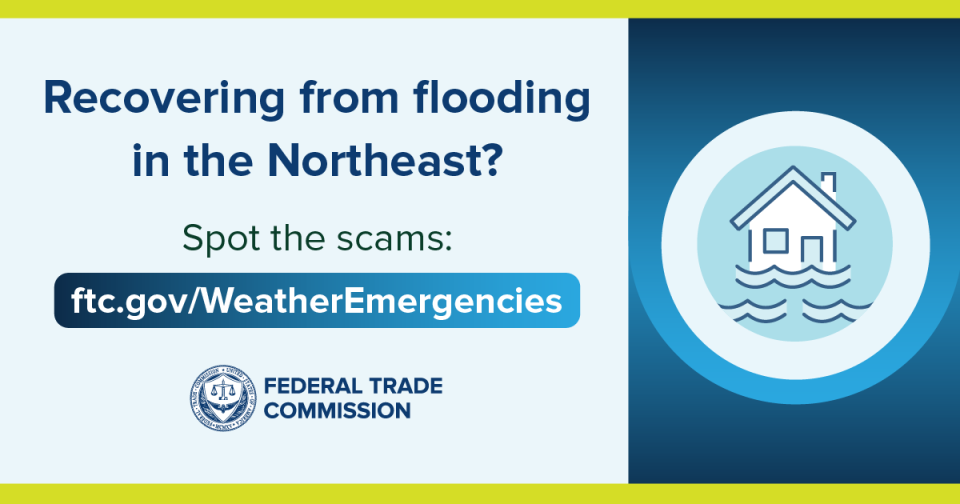As recovery efforts continue in areas of the Northeast hit hard by devastating flooding, scammers aren’t far behind. Your tragedy is an opportunity for them, and they'll try to take advantage. If one of the recent storms damaged your home, you might get offers to do things like help you clean up debris or get financial help. The offer might even seem to come from a government official. But how do you know what’s real?
The first thing to know is this: Walk away from anyone who demands personal information or money upfront. Here are some other ways to spot and avoid scams:
- Know that FEMA doesn’t charge application fees. If someone wants money to help you qualify for FEMA funds, that’s a scam.
- Be skeptical of anyone promising immediate clean-up and repairs. Those are dubious at best and a scam at worst. You’ll wind up with outrageously high price quotes, demands to pay up front, “help” without the necessary skills, and maybe even your money just vanishing.
- Check contractors out. Before you pay, ask for their IDs, licenses, and proof of insurance. Don’t believe any promises that aren’t in writing.
- Never pay by wire transfer, gift card, cryptocurrency, or in cash. Scammers want you to pay that way because they get your money quickly and it’s almost impossible for you to get it back. And never make the final payment until the work is done and you’re satisfied.
- Guard your personal information. Only scammers will say they’re a government official and then demand money or your credit card, bank account, or Social Security number.
- Spot rental listing scams. If anyone asks for a security deposit or rent before you’ve met or signed a lease, steer clear.
- Spot disaster-related charity scams. Scammers know how to seem like a real charity when they’re really just on the take. Before you give, check out how to donating while avoiding charity scams.
Suspect a scam? Report it to the FTC at ReportFraud.ftc.gov.
Find more on how to deal with and recover from disasters at ftc.gov/WeatherEmergencies.


Great article. Unfortunately these scammers are never ending (so it seems, nothing stops these fools).